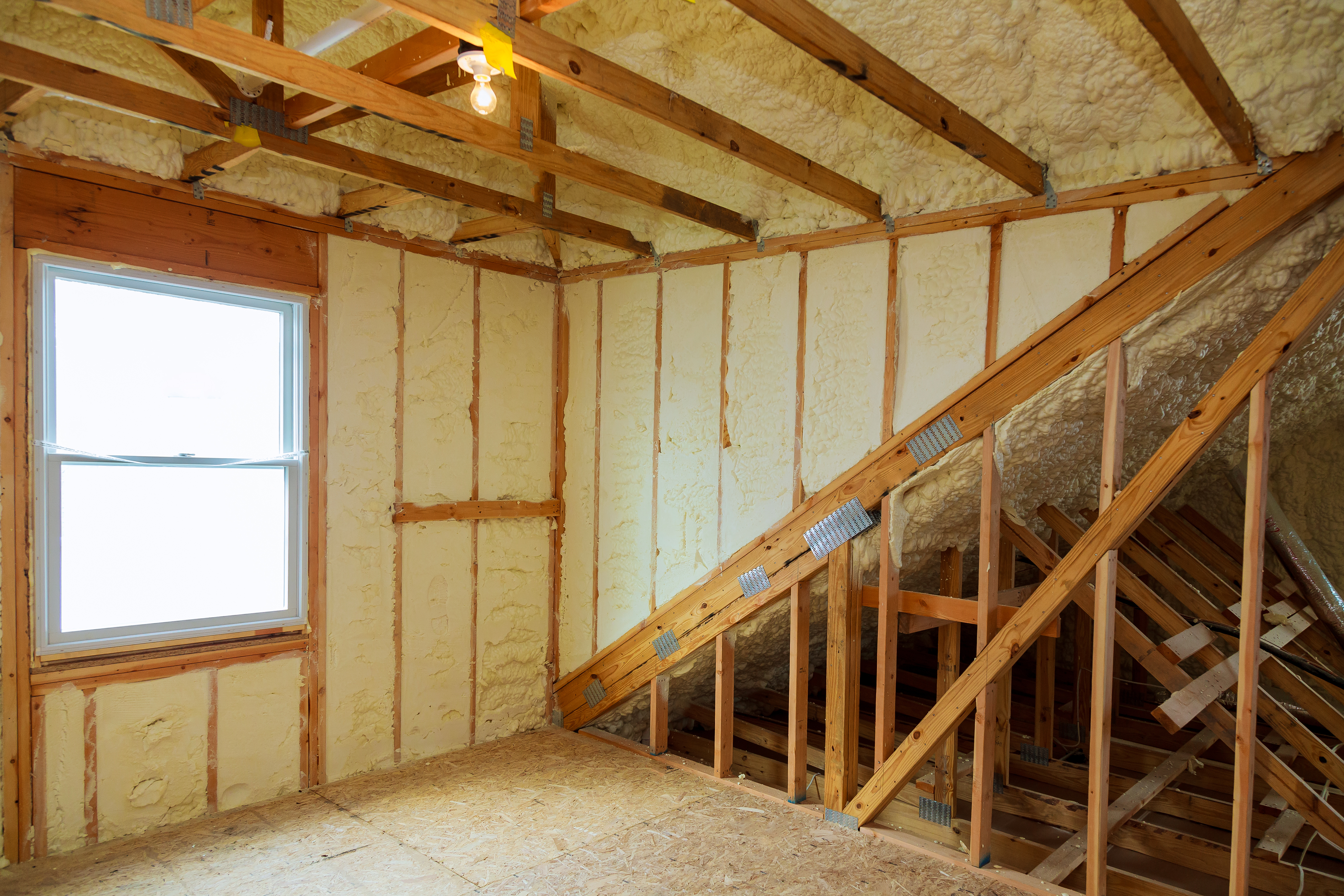
There’s a common misconception that homes shouldn’t be sealed too tightly, and when discussing the benefits of air sealing with our customers, we’re often asked whether a house needs to “breathe”. Many homeowners believe that a super tight building envelope comes with all kinds of problems and that allowing “natural” ventilation is better for your home.
The reality, however, is a home that “breathes” is a home that’s wasting energy (not to mention your money) and opening up your living spaces to all kinds of moisture and air quality issues. Insulating and air sealing your home solves all these issues. It’s impossible to seal it too tightly, as long as you have proper ventilation.
Let’s take a closer look at why.
The Problem with Poorly Sealed Homes
When people talk about a home “breathing,” what they’re really saying is that the house is not airtight. Instead, there are cracks, gaps, and air leaks throughout that air, heat, and moisture can travel through. The problem with this isn’t that it lets fresh air into your house, but that it allows for uncontrolled heat and air movement, which leads to all kinds of problems.
Wasted Energy
The biggest problem with a poorly sealed home is the energy wasted in heating and cooling it. According to ENERGY STAR, air leakage accounts for 25% to 40% of a home’s heating and cooling costs. All that energy is leaving your home… even though you’re still paying for it!
Unhealthy Indoor Air Quality
Air leaks let outdoor air and the pollutants it carries into your home. Once inside, they’re circulated by your HVAC system over and over again until they’re actively removed. This drastically reduces the indoor air quality (IAQ) in your living spaces, which can make asthma and allergy symptoms much worse.
Moisture & Mold
The primary source of excess moisture in most homes in our area is crawl spaces. Moisture and mold can seep up through unsealed floors and make your home musty and damp. A poorly sealed house will also have an aggravated stack effect, further pulling air from the crawl space into the living space.
The underlying takeaway from all three of these issues is that when you have a poorly-sealed home, you have little control over your home's performance. And the less control you have, the less you can do when there’s a problem.
The Importance of Home Ventilation
While a house can’t be too tightly sealed, it can be poorly ventilated. If you tightly seal your house without ensuring that it has adequate ventilation, you won’t get any fresh air circulation, which can make it feel stuffy and stale indoors. But the solution is not to allow uncontrolled air flow via leaks or open windows. Instead, you should install ventilation solutions. Measures like whole-house mechanical ventilation systems will provide a constant supply of fresh, filtered air without subjecting your home to the problems air leakage causes.
Get to the Bottom of Your Home’s Air Leakage Problems with an Energy Audit
So, to answer our original question: Can a house be sealed too tightly? The answer is: No! With proper house ventilation systems, a tightly sealed house offers superior home performance with increased energy efficiency that will keep your energy bills down, moisture control, IAQ improvement, and more.
Tightly sealing your home involves a combination of different services, from insulation and air sealing to crawl space encapsulation. So what does your particular home need? The best place to start is a home energy audit. Total Home Performance offers comprehensive energy audits in the Chesapeake Bay area. Our home energy auditor uses specialized tools like blower door tests and thermal imaging to collect data specific to your Eastern Shore, Delaware, or Anne Arundel County home. Then, we’ll be able to develop a holistic air sealing strategy that improves your home efficiency and keeps your family breathing easy.